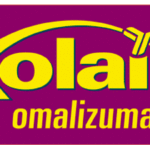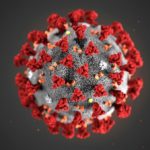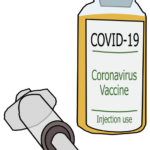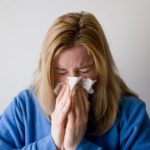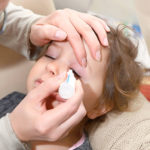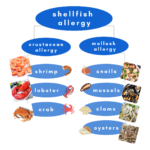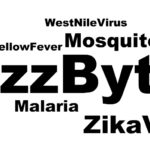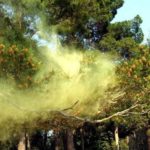Food Allergy Awareness Week 2017: Oral Allergy Syndrome (OAS)
Food Allergy Awareness Week 2017: Oral Allergy Syndrome (OAS)
With allergies and asthma on the rise in the United States, education and awareness are critical to attaining proper treatment and care. This is particularly true regarding food allergies. This week (May 14-20, 2017), The Asthma Center joins Food Allergy Research and Education (FARE) in celebrating 20 years raising awareness on the seriousness of food allergies.
Itchy Mouth After Eating? Food Allergy & Pollen
Does your mouth, throat and/or lips become itchy after eating raw fruits and vegetables? Do you have pollen allergy? If you answered “yes” to both of these questions, you may suffer from a type of food allergy called Oral Allergy Syndrome (OAS). This syndrome is also known as Pollen-Food Allergy Syndrome (PFAS).
What Do I Need To Know About Oral Allergy Syndrome (OAS)?
- The most common symptoms of OAS include itching, tingling and/or mild swelling of the mouth, throat and/or lips. Less commonly, nausea and/or stomach upset. Reactions can be life-threatening, with systemic allergic reactions occurring in nearly 9% of individuals, with anaphylactic shock in 1.7% of those affected by OAS.
- Itching in OAS is caused by local allergic reactions triggered by contact of the lips, mouth and throat with allergenic proteins found in raw fruits and vegetables that are cross-reactive with allergenic proteins found in pollen to which an individual is allergic. Symptoms may also be caused by peanuts, tree nuts, spices and soybean.
- OAS most commonly has its onset in older children, teens and young adults who have eaten the suspect foods for many years with no allergic or other adverse reactions.
- Symptoms typically develop immediately after eating suspect foods and usually resolve within minutes of swallowing the foods. In rare cases, symptoms can develop up to one hour after eating. Symptoms are generally most severe during the related pollen season. Medical treatment is usually not necessary.
- Specific pollens have been associated with OAS symptoms triggered by specific foods. Examples include:
Birch pollen: apple, almond, carrot, celery, cherry, hazelnut, kiwi, peach, pear, plum.
Grass pollen: celery, melons, oranges, peaches, tomato.
Ragweed pollen: banana, cucumber, melons, sunflower seeds, zucchini.
What Should I Do If I Suffer from OAS?
- The best treatment is avoidance! Avoid foods which elicit OAS symptoms. This is particularly important in light of the low, but real, risk of anaphylaxis.
- Cooking foods thoroughly may prevent OAS symptoms by denaturing proteins in the foods and rendering them less recognizable to the immune system and, consequently, less likely to cause allergic reactions (e.g. most individuals can eat apple pie even though they can’t eat raw apples; for those with no history of milk allergy or lactose intolerance, a nice scoop of vanilla ice cream on top is recommended).
- Consultation with an Allergist is highly recommended to evaluate for pollen allergy and to define whether food-related symptoms are due to OAS, or true life-threatening food allergies. Treatment of pollen allergy with allergen immunotherapy (allergy shots) in those individuals with allergic rhinitis and/or asthma has been shown to be effective in reducing symptoms of OAS.
- Always carry an epinephrine auto-injector (e.g. EpiPen or AuviQ) to have immediately available to use in the event of an anaphylactic reaction.
So, beware! If you are allergic to tree, grass and/or weed pollen, you may be at risk for Oral Allergy Syndrome.
Board-Certified Allergists, Pediatric Allergists & Asthma Specialists
Effective treatment of food allergies and other related medical conditions first depends on a correct and proper diagnosis. Seeing a board-certified allergist is your first stop to healthy living with food allergies.
Our allergists, pediatric allergists, and asthma specialists treat patients in 9 convenient locations throughout the Delaware Valley including Philadelphia (Center City Philadelphia, Society Hill Philadelphia, Northeast Philadelphia), The Main Line – Montgomery County (Bala Cynwyd – Lower Merion PA), Bucks County (Langhorne PA), and South Jersey (Mt. Laurel NJ, Woodbury NJ, Hamilton NJ, Forked River NJ).
The health information contained in this article is meant for basic informational purposes only. It is not intended to serve as medical advice, substitute for a doctor’s appointment or to be used for diagnosing or treating a disease. For interviews and tours of the Delaware Valley’s only National Allergy Bureau (NAB) certified pollen, ragweed, and mold spore counting stations in Philadelphia, PA and Mt. Laurel, NJ, please email gwoodlyn@asthmacenter.com.
Recent
Popular


